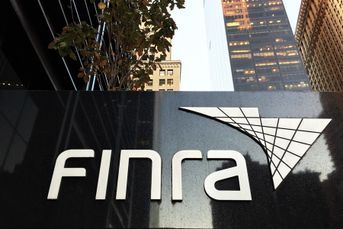Revenue rebounds
Revenue increased for a healthy majority of financial advisers over the past 12 months, according to InvestmentNews' 2010 Industry Attitudes survey — a clear bounce-back from 2009, when calamitous market conditions struck panic among investors and advisers alike
Revenue increased for a healthy majority of financial advisers over the past 12 months, according to InvestmentNews‘ 2010 Industry Attitudes survey — a clear bounce-back from 2009, when calamitous market conditions struck panic among investors and advisers alike.
View Financial Performance data here.
“The past 12 months have been kinder to advisers than the year prior to that,” said Alois Pirker, research director for the Aite Group LLC’s wealth management practice. “It’s been the market performance in general, but advisers have capitalized on being fiduciaries and giving advice, rather than offering run-of-the- mill brokerage services,” he said.
Of those participating in the survey, 75.5% percent reported higher year-over-year revenue; the year before, only 36.9% said revenue had increased. And the gains reported were significant. More than half (51.2%) reported increases of 10% to 20% in the past 12 months. Another 25.8% said revenue had climbed by between 21% and 50%.
The latest online survey, conducted between Sept. 22 and Oct. 6, drew responses from 839 advisers. The assets they controlled ranged from none to more than $500 million, with the largest group (23.9%) controlling between $50 million and $99.9 million in assets. The next-largest group (22.4%) controlled $100 million to $499.9 million in assets.
‘BLEAK PERSPECTIVE’
With the credit crisis still a painful memory, advisers and executives said focusing on clients’ concerns about safety is more important than ever. “We all had a bleak perspective after the meltdown,” said Michael Stolper, chief executive of Veritable LP, which managed $8.9 billion as of March 31.
“It would appear that for high-net-worth clients, objective advice continues to be in demand,” he said. “But clients are much more demanding. They have questions about the safety and soundness of investment vehicles. They want to know who’s counting the money and who’s holding the money.”
“The crisis has been a talking point,” said Richard Hough, chief operating officer of Silvercrest Asset Management Group LLC, which controlled $8.6 billion as of March 31. “A big shift has been in clients’ due diligence.”
For some wealthy families, choosing an adviser has become a much more formal process, Mr. Hough said. Fearful of putting their money with the next Bernard Madoff, more wealthy prospects will hire a consultant or put out a request for proposals when searching for an adviser, he said.
“Even though the market generally has gone up, there’s been ungodly volatility and extreme viewpoints” in the media and marketplace, said Jeffrey Vahanian, president of Vahanian & Associates Financial Planning Inc. His main message has been “telling clients not to get influenced by all the hollering for you to do something, and not be overly influenced by the noise,” said Mr. Vahanian, whose firm oversees about $115 million in assets.
Many advisers and industry observers pointed to strong market winds at their back for most of the past 12 months as a chief factor in increasing firm revenue. During the period, the S&P 500 gained 10.8%. Simply put, rising assets equate to an increase in revenue for a registered investment adviser firm.
But those same advisers and observers noted that business opportunities, such as snagging wealthy clients or merging with smaller firms, abound in an environment where clients and advisers distrust banks and brokerages that were bailed out by the federal government.
Such misfortune was “really beneficial to the [registered investment advisory] industry,” said Rob Francais, chief executive of Aspiriant LLC, which controlled close to $4 billion in client assets as of March 31. “You’re seeing a lot more families move to an independent RIA.”
At the same time, small to midsize RIAs that opened their doors a year or two before the market collapse of 2008 are hurting, Mr. Francais noted. “A lot of small startup RIAs couldn’t withstand the downturn, and big firms may acquire them, as well as medium-sized firms.”
Those startup RIAs are vulnerable through no fault of their own, Mr. Francais added. “They simply could have picked the wrong time,” he said.
Mr. Francais defined a small advisory firm as having $300 million to $500 million in client assets, and a midsize firm as having $500 million to $1 billion.
SECOND THOUGHTS
The past two years has forced some wealthy clients to re-evaluate how they manage their money, said John Elmes, senior partner with GenSpring Family Offices LLC, which had $16.9 billion in assets as of March 31. The years 2008 and 2009 “forced wealthy families to see that all financial decisions have impact, that charitable giving influences spending,” he said.
The typical wealthy client who comes to GenSpring is a family patriarch in his 60s who needs help with the many decisions he faces and is weighing passing his wealth to his family, said Mr. Elmes. “They were their own family office, a referee in the middle of making decisions with their investment bank, accountant and attorney,” he said. Such wealthy individuals have decided that playing that role “is not sustainable,” he said.
“In the aftermath of the crisis, we definitely saw a lot of circulation of business,” Mr. Stolper said.
For example, he said, small advisers catering to one family were overwhelmed during the financial crisis and looked to larger multifamily offices for help. “Some single-family offices are throwing in the towel,” Mr. Stolper said.
E-mail Bruce Kelly at [email protected].
Learn more about reprints and licensing for this article.








